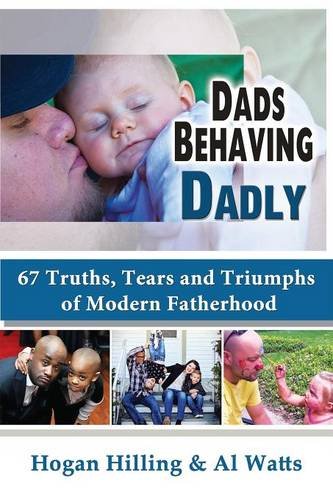A producer with HuffPost Live emailed me last week to see if I’d participate in a live-streaming discussion on fatherlessness in America.
The discussion would revolve around this HuffPost blog post based on a recurring theme on Jay-Z’s newest album: the fears of a fatherless father.
Though I know next to nothing about Jay-Z, I know a great deal about growing up fatherless and can relate to the feelings he expresses on his new album.
Marc Lamont Hill hosted the discussion with Thabiti Boone, fatherhood adviser to the Allan Houston Foundation, in studio and several panelists joining in via webcams: Derek Phillips, Jeff Zelaya, Mark Anthony Neal, and me.
Marc asked a question to start the discussion: How can you be a good dad if you didn’t know your own?
Simple question, right? Simple answer, right?
Maybe, maybe not. Fatherlessness has many faces, so it’s impossible to answer Marc’s question as simply as he asks it.
But before talking about those faces, I can think of a few cases in which kids are better off without their dad. Most of these involve drugs, alcohol, or some sort of other abuse. Without question, children are better off fatherless than with an abusive dad.
But the question quickly becomes harder to answer.
What if your father left your mother for a younger woman? He obviously didn’t want to stay. Were you better off with or without him?
What if your mother kicked your father out because she no longer loves him? Were you better off with or without him? Would it make a difference if she simply fell out of love with him, or she kicked him out because he was lazy, irresponsible, or exhibited some other negative trait?
What if your father was present in body, but not in heart and spirit? Let’s say he spent his nights glued to his computer and the weekends playing golf. Were you better off with or without him?
Or perhaps the most tragic: What if your father died?
Regardless of the face fatherlessness wears in your life, the first step in becoming a good father is acknowledging the trauma fatherlessness causes. We shouldn’t pretend fathers are dispensable and that fatherlessness is no big deal.
My own experience growing up fatherless tells me otherwise as well.
And my own children tell me otherwise practically every day. My 8-year-old son Gavin did just the other night. I had just returned home well after midnight from a business trip in Chicago, and walked in his room to give him a kiss goodnight.
I give him such a kiss every night before I go to bed, and he never stirs. But this night, after I had been away for a few days, Gavin sprung out of bed, yelled “Daddy!” and hugged me like he hadn’t seen me in a year.
I know I matter to him, just like all fathers matter to their children.
Once you accept that fathers are a necessary part of children’s live, the next step is easy: be there.
You don’t have to paint like Picasso to finger paint. You don’t have to pitch like Cy Young like to play catch. And you don’t have to swim like Michael Phelps to enjoy a day at the pool. You just have to be there, and you’re well on your way to being a good dad.
Finally, if you’re worried about a being a good dad, you have nothing to worry about. All that worry means is that you are aware enough of yourself to question your own shortcomings. Once you know what those shortcomings are, you can deal with them.
But believe me, your kids will not see them. All they will see is a father who wants to spend time with his children. And that, my friend, is what it means to be a good dad.
If I can do it, so can you.



Great job Jeff! It was an honor to be a guest with you and the other amazing dads.